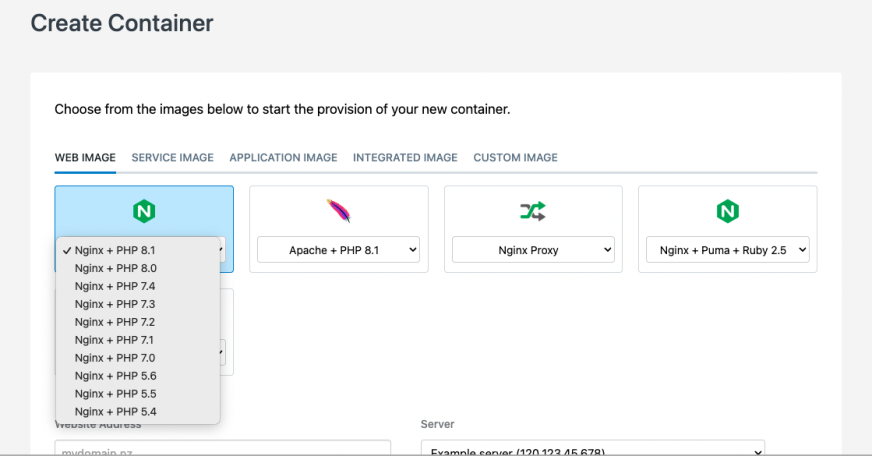Magento means business, and serious hosting decisions
Your Magento store needs more than regular shared web hosting, but how much more?

You can tell something about a business just from the CMS that they run. Take Magento (which you might also know as Magento Open Source). Every Magento store is a serious undertaking, signifying a serious retailer. A lot of technical effort goes into every Magento implementation, but it’s worth it when a robust and profitable web store is the result.
This is why Magento hosting is a bigger deal than just finding a standard shared server somewhere in the cloud. When you compare your hosting options there are all the usual boxes to tick - like uptime, security and monitoring, location, speed and performance - and then the real decision-making begins.
We have plenty of Magento (v1 and 2) stores humming in our data centre.
Compliant, personalised retailing starts with the right ecommerce hosting
Let’s look at the specifics of ecommerce, like compliance. Online payments require PCI compliance. Meanwhile, slick shopping experiences rely on personalisation. To manage customer accounts and offer personalised recommendations takes customer data, and to store and manage that data requires compliance with relevant laws and standards. Exactly what you need to comply with can change depending on where you and your customers are, and what you’re selling.
If you choose a hosting provider without plenty of proof that they’re secure and compliant, you’re asking to be their test case. That puts your store in the firing line if there’s a data breach or compliance issue, even if you didn’t configure or manage the server.
Compliance isn’t the only thing that makes ecommerce different from other websites. There’s also the immediacy. If your site is even a couple of seconds too slow, shoppers can abandon you for the competition. The costs of a full outage, even for a few minutes, can be huge.
There are technical and human sides to this. Slowdowns or downtime often have a technical cause - maybe the hardware that Magento is running on, or the networking infrastructure connecting it to customers, or the software environment that it’s running in. Diagnosing and fixing that problem is a matter of service - service that you get from the people who you depend on to keep your store open.
Developers, designers and store owners always have something better to do than worrying about servers. SiteHost engineers know what it takes to keep your Magento site fast, always accessible and secure.
You want hosting from a provider who understands the immediacy of ecommerce. On the technical side that means fast, modern hardware; redundant networking that can route around single points of failure; and environments that are supported, patched and secure. On the human side you need to know that any problems will be found quickly and solved properly. You want a professional support team that’s always available and won’t mess you around.
If you’re serious enough to run Magento, you’re serious enough to need professional server management. If you don’t have a sysadmin on your team make sure that you can access managed hosting from your provider. There will be a cost attached, but you wouldn’t run a physical store without paying for insurance, right? This is the Magento equivalent.
Experience with Magento is a must
As well as ecommerce experience, look for a web host with Magento experience. Magento is a unique enough system that you don’t want to be the first to install it on anyone’s infrastructure. It’s relatively “heavy” and needs more resources (storage, CPU and RAM) than other systems, for example WooCommerce, just to get up and running. This and other quirks make Magento experience a crucial factor when you’re choosing a host. The good news is that here at SiteHost we’re already hosting a lot of secure, PCI compliant stores. On top of that, we have plenty of Magento (v1 and 2) stores humming in our data centre already.
This experience pays off again every time your host’s support team does any server maintenance or responds to any requests from you. When you’re dealing with people who know Magento, you know that they’re not going to make a sub-par fix that would only be good enough for a less powerful platform.
We get Magento, and we really get hosting
Hosting can be fiddly and time consuming at its easiest, even before you add a CMS like Magento into the mix. Developers, designers and store owners always have something better to do than worrying about servers. SiteHost engineers know what it takes to keep your Magento site fast, always accessible and secure. We’ve been doing it for years with our other Magento customers. Our support team is well versed in Magento hosting and are here to support you 24/7.
On top of that, our Managed Services include day-to-day maintenance, proactive security patching, round-the-clock monitoring, and 24/7 access to our on-call engineers. For a few extra dollars a day you know that there’s a team working for you, even as you sleep. We offer a few different options that work well for Magento. You can read about them below, but for this sort of CMS it’s often best to talk with us before spinning anything up.
Plenty of options, but Cloud Containers usually fit the bill
SiteHost Cloud Containers are our most popular solution, including with Magento developers. They’re scalable, secure, and fast, and they take away a lot of the hosting hassles that slow down development. You can spin up a Cloud Container and install a Magento-ready image in minutes.
From experience we recommend starting at a minimum of 4 cores for smaller Magento stores. For bigger stores we have options ranging up to 10 or more cores.
You have the choice from pre-built web images (including NginX + PHP or Apache + PHP) or service images (e.g. Redis 5 or 6). You can also create custom images to support Varnish or other performance-related tooling. This sort of extensibility is built into Cloud Containers because the entire platform is designed to put developers first.
To take one recent upgrade as an example of our developer-first thinking, Container cloning and syncing makes it quick and easy to create test or dev environments so you can work away from production and quickly merge changes to your live Magento store.
Because of their flexibility and scalability, we host stores of all sorts of sizes on Cloud Containers. From experience we recommend starting at a minimum of 4 cores for smaller Magento stores. For bigger stores we have options ranging up to 10 or more cores. If you're unsure what's right for your store, our expert team can help scope your requirements.
Being easily scalable, you can quickly increase your cores, RAM, and storage. Or you can add disk space alone. These options ensure that Cloud Containers can handle the rush of traffic during sales and other peak times. It also means that when your store grows, your hosting can grow with it.
Options for when you need even more
Cloud Containers fit most Magento-based businesses but some stores have specific requirements that are best handled in another way. Examples could include seriously huge and busy Magento stores, very high security requirements, or even full root access to the server for administrators. In these cases our Linux VPS, Virtual Dedicated Servers (VDS) or Dedicated Servers are the solutions to compare.
With a VPS you have broad configuration options, a choice of Linux distro, and your choice of either root access or our Managed Services. A Dedicated Server is a custom-built machine that’s all yours - no shared hardware at all - which lets you request as many resources as you like, and can help meet stringent privacy requirements. In between these options, a VDS offers the performance of dedicated hardware (including dedicated drives and cores) at a cost that’s closer to a virtual server.
We’re here to talk with you about what you want to get out of Magento and how we can make it happen. Whether it’s a matter of scoping the right Cloud Container server, or comparing private and dedicated options, now’s a great time to start a conversation.


